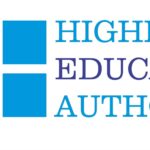Many Matrics from the Class of 2018 currently find themselves in the fortunate position of having performed better than anticipated in their National Senior Certificate examination, achieving a Bachelor’s pass and qualifying for higher education access. But while they are now in a position to apply for further study, these prospective students need to ensure they do their homework before signing up with institutions still accepting applications for study in 2019, an expert says.
“In particular, parents and Matriculants must ensure they don’t fall prey to institutions that are either not registered and accredited, or whose qualifications are not recognised,” says Nola Payne, Head of Faculty: Information and Communications Technology at The Independent Institute of Education, SA’s largest private higher education institution.
“The good news however, is that there are still exciting study options available, particularly in the private sector, where good institutions have a strong focus on work-ready programmes,” she says.
Payne says now is also a good time for even those prospective students already accepted into a programme, to consider whether they have chosen the right study path. If there are any doubts, they should have another look at available options rather than adopting a potentially expensive wait-and-see approach in their first year.
“This coming month provides an opportunity for prospective students to investigate all their options and sign up for a quality qualification with an accredited institution, whether they left it too late, or performed better than envisioned. And those who have already signed up, should honestly assess whether they are excited about the degree on which they will soon embark, as well as the institution they will attend.
“It is better to change course now, before spending time and money trying to make the wrong thing work, and becoming part of SA’s high first year dropout statistics,” says Payne.
“Make sure that you are studying for the right reasons, and that your qualification will provide clear access to a specific career, whether it be a professional qualification such as accounting, law or teaching, or in a new exciting career path such as brand management, digital marketing, network engineering, game design and development, and application and cloud development. Don’t just apply for any degree at any institution for the sake of earning a qualification,” she says.
Payne says South Africa’s single quality assurance system and one National Qualifications Framework means that any institution offering a registered and accredited qualification – whether public or private – is offering a qualification of equal standing.
She says all registered and accredited higher education institutions – whether they be public universities or private – are registered by the Department of Higher Education and Training (DHET). They are only registered if they have been accredited by the Council on Higher Education (CHE) and registered by the South African Qualifications Authority (SAQA) on the National Qualifications Framework (NQF).
“To look up a qualification on the NQF, search for it on the SAQA website, or ask the institution for its SAQA identity number, which should be readily available. If the institution is recognised by the DHET and the programme is listed on the NQF, prospective students and their parents can be confident about the bona fides of any qualification they want to pursue,” says Payne.
She says that as the world of work changes and evolves, new programmes are constantly developed in response to workplace demands.
“This means there will regularly be new and more exciting options on offer compared to the past, and potentially fields of qualification that are more aligned with the career aspirations of prospective students. However, it is imperative that one does one’s homework carefully, because unscrupulous operators have become increasingly sophisticated in their methodology. Fraudsters are making the most of the often hard-to-understand language related to legitimate private higher education, which means that they are able to present offers that appear legitimate, but are not.
“It is good to have more choices, but make sure you make smart decisions,” says Payne.






